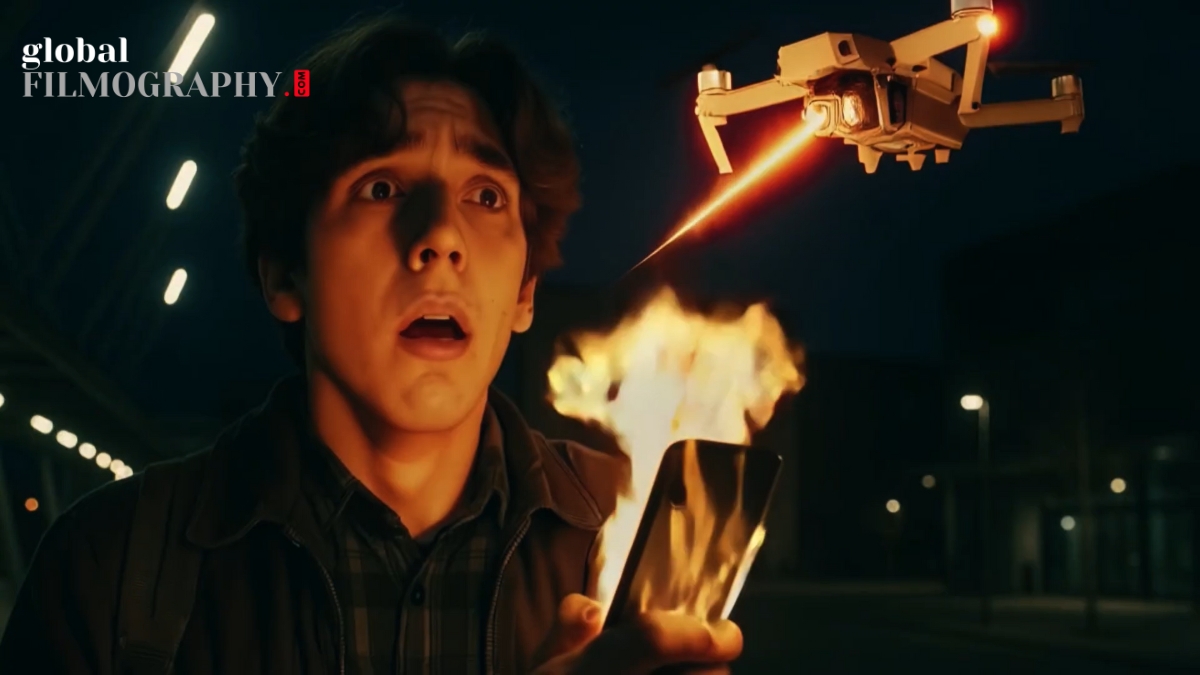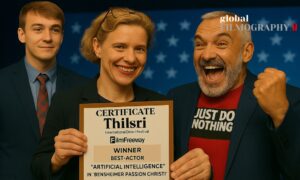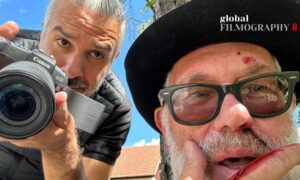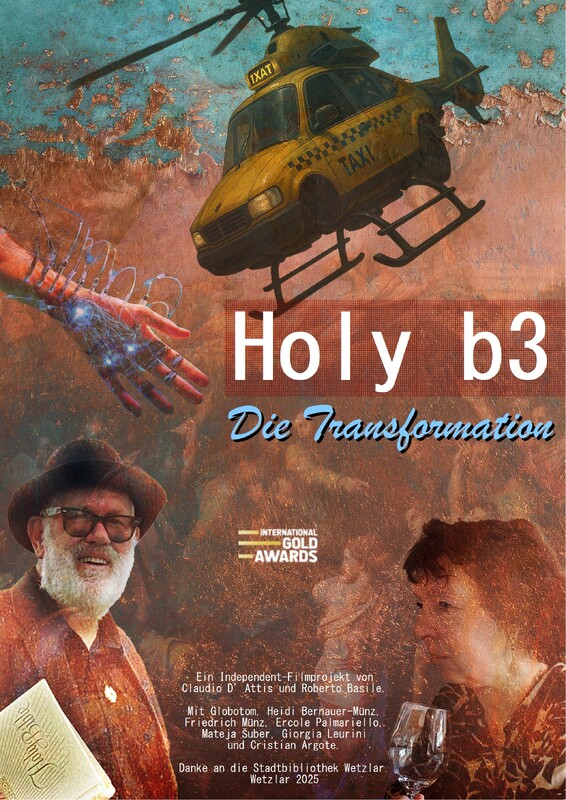
Holy B3 – Die Transformation is a short film written by Jeremiah Unom and directed by Claudio D’Attis that comes as the second episode of its series, following the thought-provoking experimental film, Holy B3.
Much like its predecessor, Die Transformation continues to explore the connection between religion and artificial intelligence, a rather fascinating subject that is worth discussing. After all, as both feared and praised AI continues to make its way through several aspects of human life, is impossible to ignore its presence and the role that it will play in the years to come, especially as it continues to gather more information on the human mind. The more we interact with it, the more it will learn from us and will continue to adapt to the creation that mimics our behavior and conduct, and when this involves religion, we can’t help but wonder what will AI think of humans and our countless concepts of God. If our religious beliefs come from an inner call to understand life, existence, and the universe, and AI is the result of what we have created through countless years of evolution and rational (and irrational) thinking, then AI can become the ultimate expression of the collective mind and show us what we somehow have created through centuries of debate and introspection, which results in an alarming, but intriguing reveal. And we know that even so, humankind will refuse to accept whatever answer AI might provide as it’s in our nature to reject and question, but what will become of humankind when AI realizes that our capacities for knowledge are limited, but it isn’t? What will happen if AI somehow manages to convince itself of a religious doctrine that doesn’t go along with our vision?
Such are the kind of questions this film brings. As an experimental piece, the film doesn’t offer any particular answers, instead provoking its viewer to think about the possibilities (good and bad) that the combination of these two creations of humankind might create. For some will be terrifying and for some will be amazing. It all will depend on how we feel towards them already, but one thing is for sure – what Claudio D’Attis and company are doing here is an outstanding job of human introspection that explores the multiple opportunities (and risks) that AI can provide. The film is full of odd but intriguing visuals that linger in the viewer’s mind for long after watching and that invites us to question our perception of reality. With AI, every image is possible to create and while we are still somehow able to recognize an AI creation from reality, there will come a point in which we won’t know if what our eyes are seeing is real, and this poses both an opportunity and a risk. We are getting closer to creating our wildest dreams and visions and, if things go on like this, we might even be able to create our own personal realities. But, at the same time, what will prevent us from falling into a reality created by someone else?
Ah! This subject is certainly amazing to debate. The pros and cons are immeasurable, but one thing is for sure… the more we see, the more we need to question what we believe and what we decide to believe (two very different things), and isn’t that the anti-thesis of religion itself? If religion comes from the idea of believing what goes beyond what meets the eye, and AI can fool our eyes into believing anything, couldn’t that be the biggest deception, the greatest challenge humans have been able to create against God? If we convince ourselves to believe what we see and to create what we see as it pleases us, couldn’t that change our perception of everything we know? Furthermore, wouldn’t that make us able to be who we really are in our most primal, wildest attitudes, departing from religious morals and ethics?
Again, ultimately, the answer will come from ourselves. The AI debate is here to stay and what Claudio D’Attis and company are doing with these films is to invite us to think about these and even more questions. Much like everything in life, your approval or rejection of these films will depend entirely on your perceptions and convictions, but we can’t deny that they will make us think about the oldest and the newest human creations and their similarities even if they can pose opposite poles in our quest for meaning.

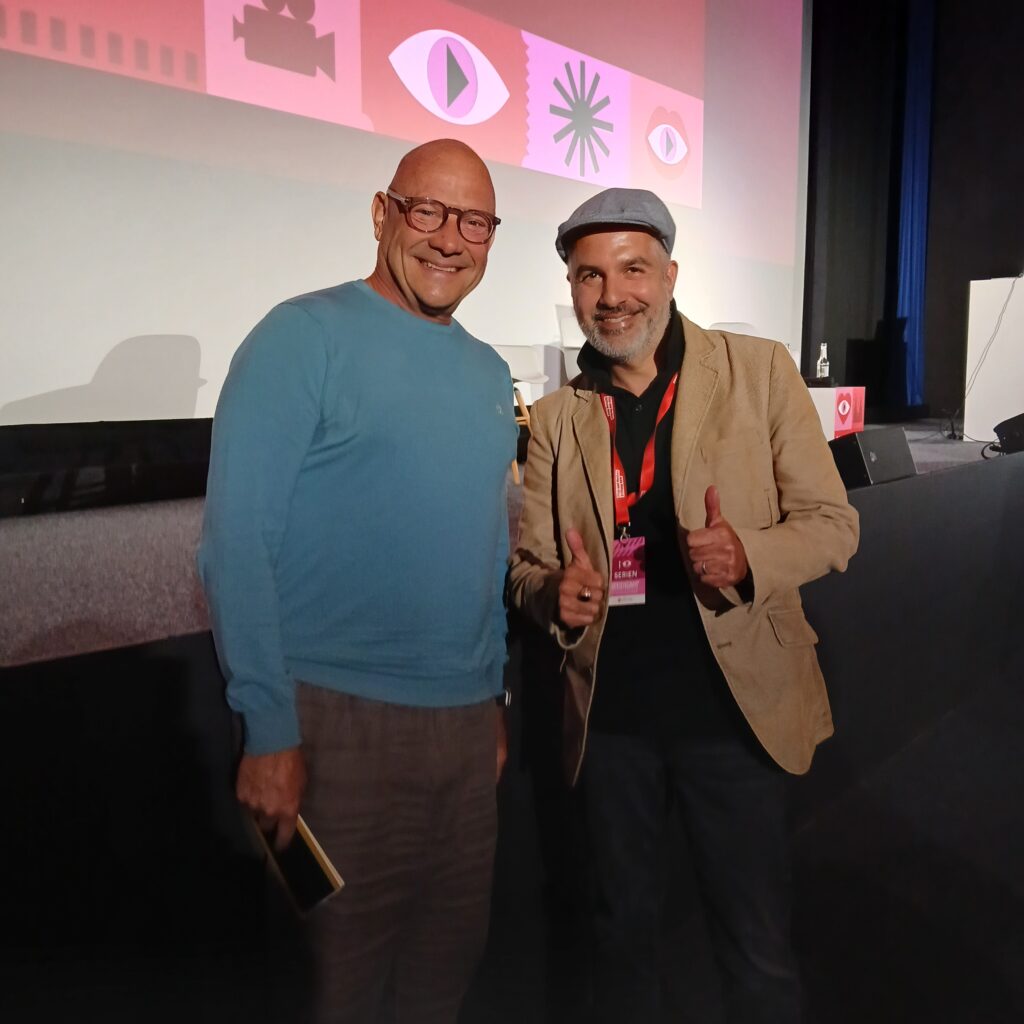

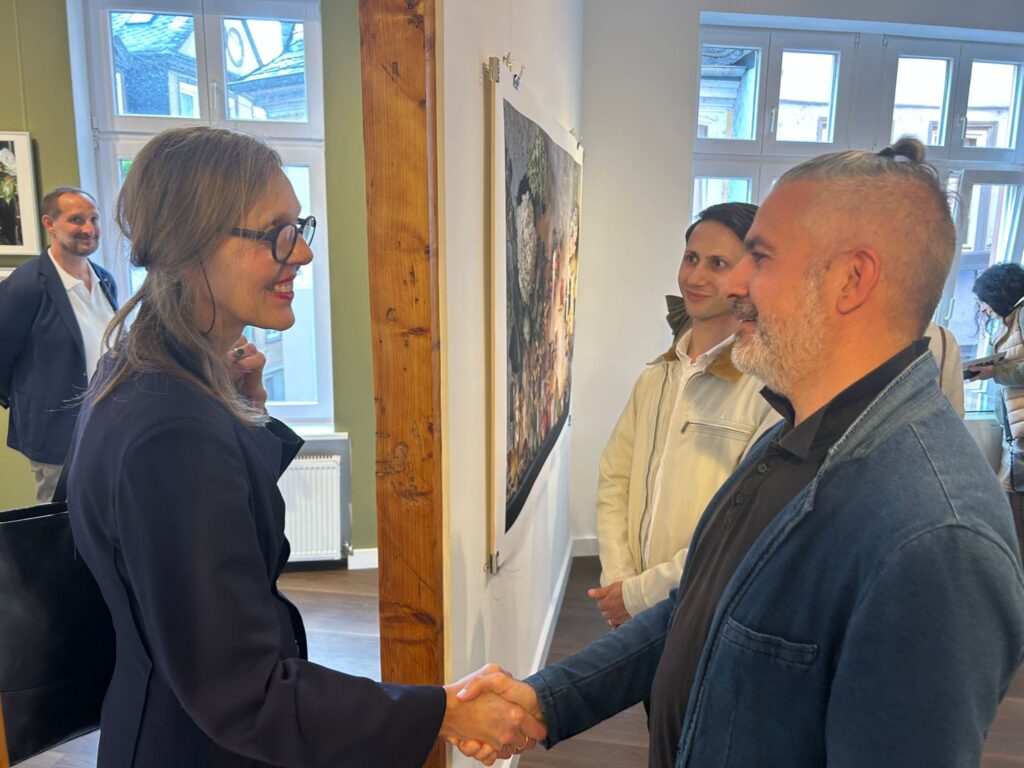
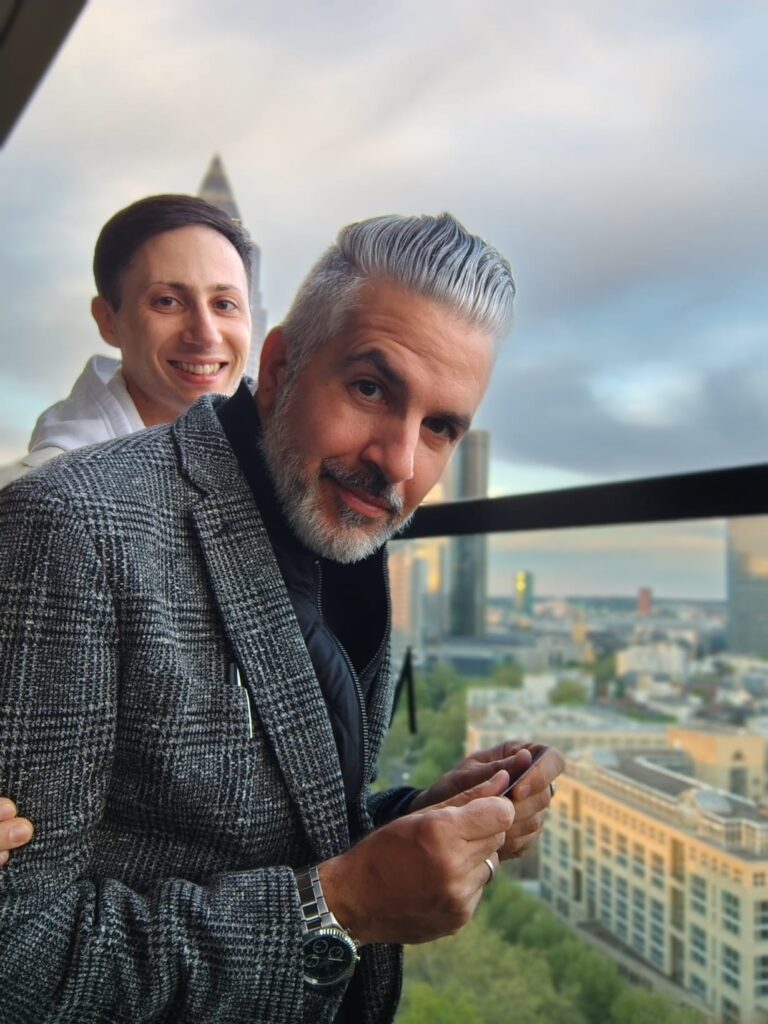
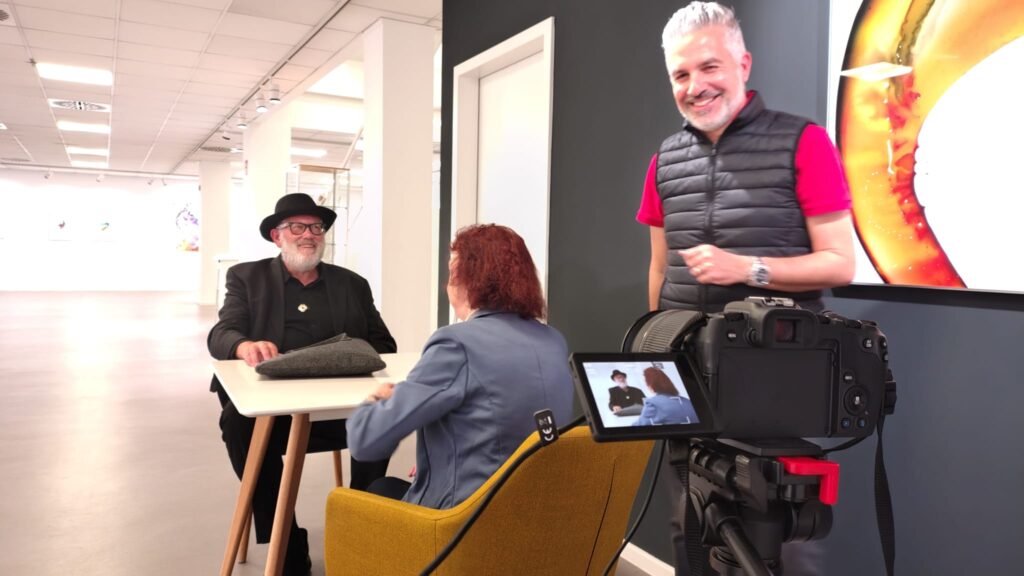
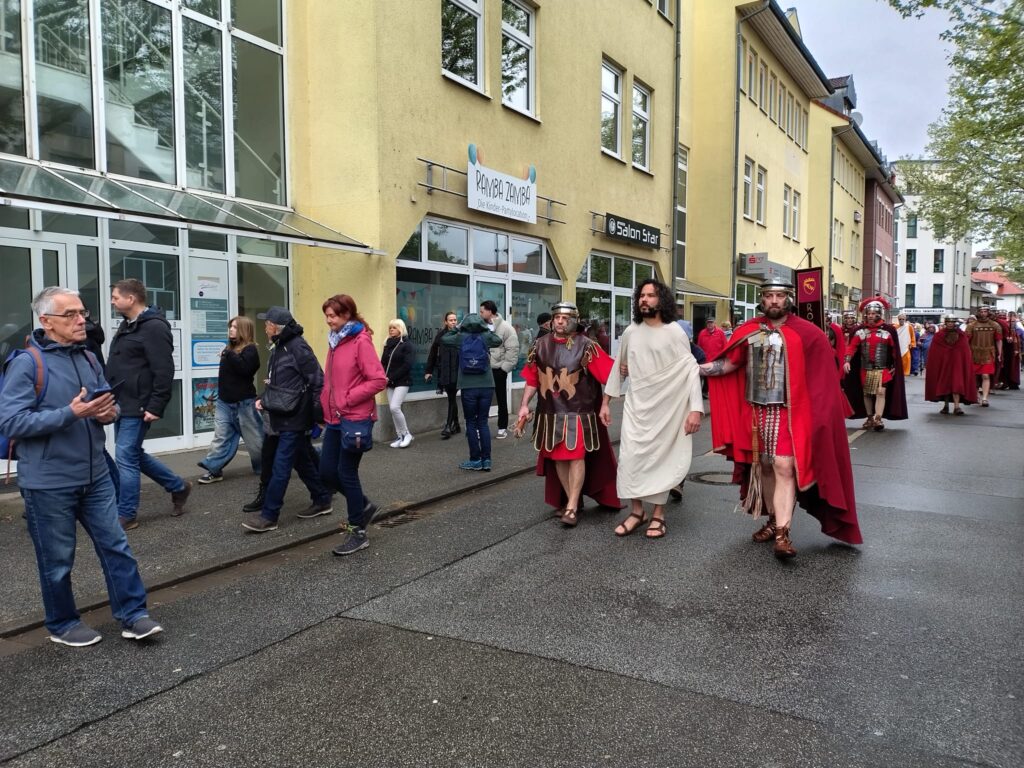
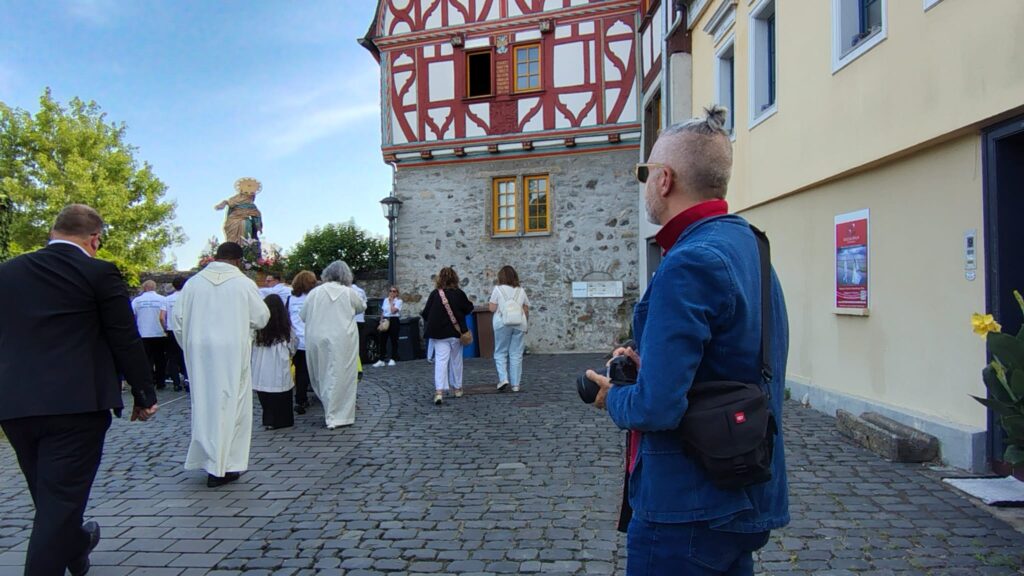
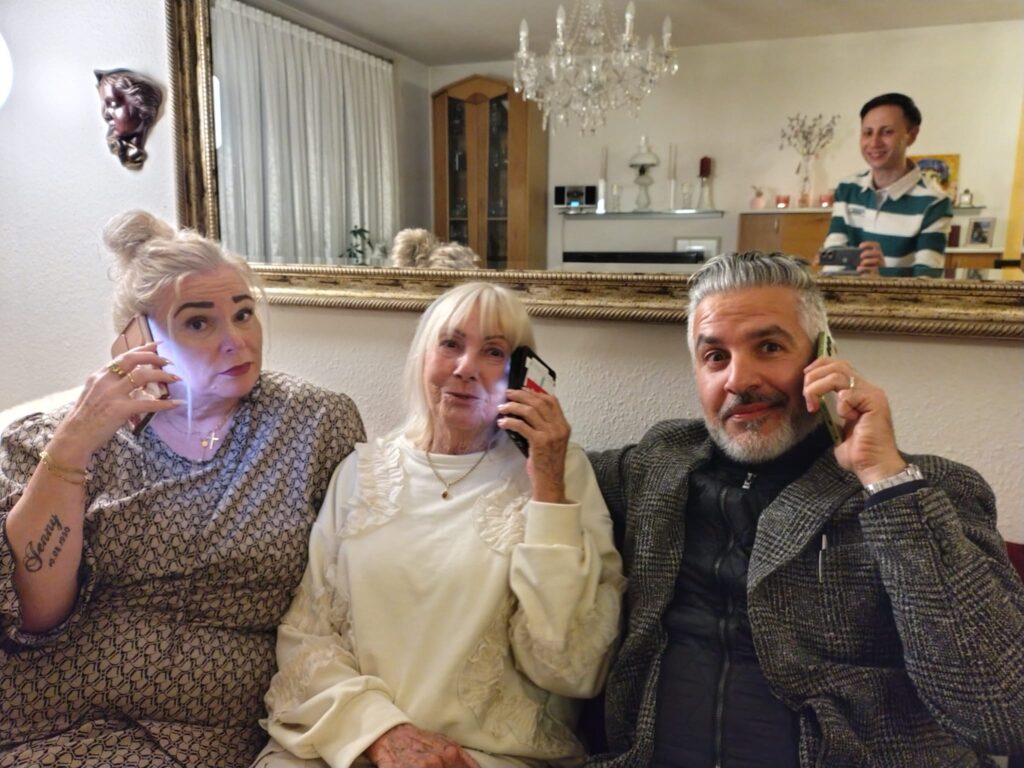
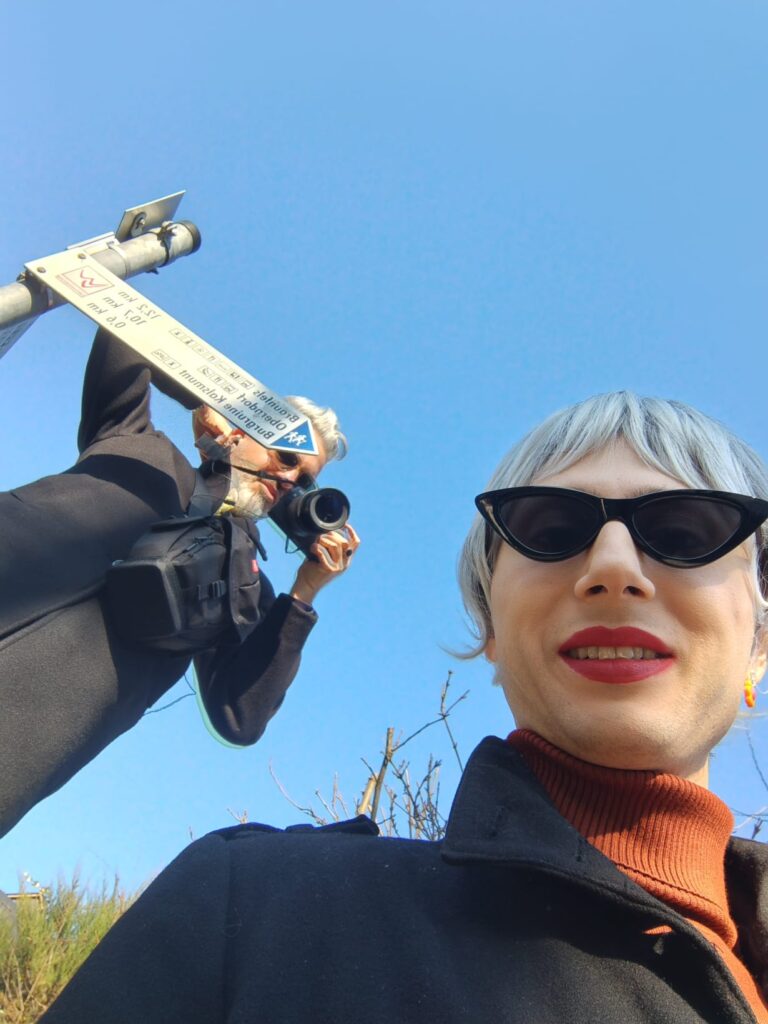
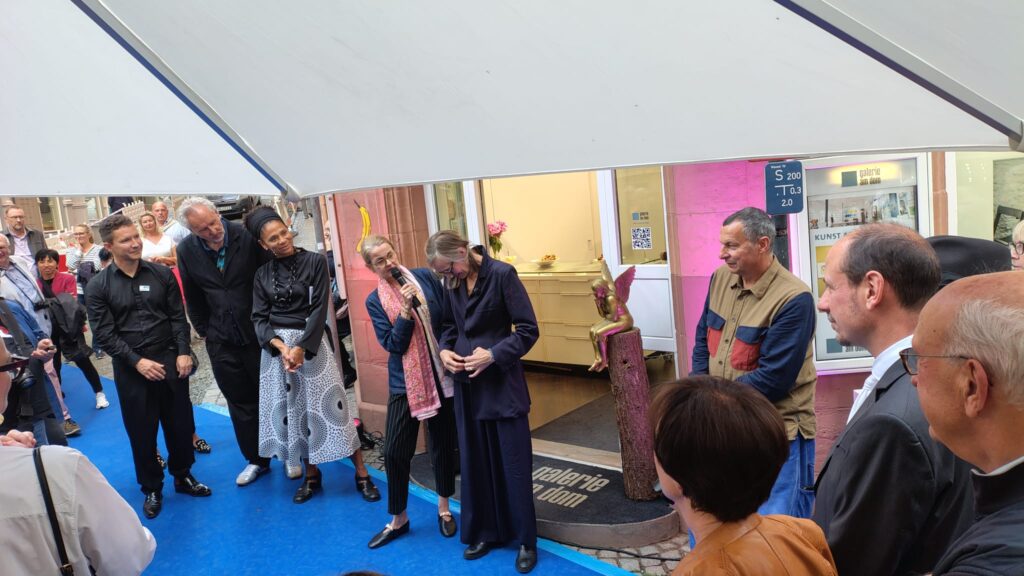
Whether it’s for a streaming event, a festival, or a barcamp, nothing is more engaging than a real handshake (with Donata Wenders), a smile (with Guido Reinhardt), or an inviting and experimental set (with Heidi Bernauer Munz and Globotom). After Holy B3, Holy Anna, and Holy Passion, we wanted to be present with our media tools — whether masks or technology — at the conflicted protest for diversity rights, whether Christian, extremist, or LGBT (Roberto Basile and Claudio D’Attis).
Credit’s
Roberto Basile: art director/actor
Globotom: music/actor
Cristian Argote: boom/actor
Heidi Bernauer Münz: Protagonist
Ercole Palmariello: GraficSpecial Thank to: Library of Wetzlar, Giorgia Leurini (actress), Mateja Suber (actress), Alexander Hoymann (Actor), Franco D´Attis (Actor).
Director Biography – Claudio D´Attis
Claudio D’Attis, in addition to being a director, is a scientific project manager at the Chair of Technology Didactics at the University of Siegen and collaborates with educational projects such as Youth Globe, which supports young talents in achieving their professional goals.
Director Statement:- The first episode, released in 2024, received the Best Editing award at the Hollywood Gold Awards. The second episode, *Holy B3 – Transformation*, is currently in production with the long innovative collaboration of the artist Roberto Basile. The musical collective Globotom is composing the soundtrack and also participates as an actor, playing the role of a priest. Script is of Jeremiah Unom. First time on the screen: Heidi Bernauer Münz.


